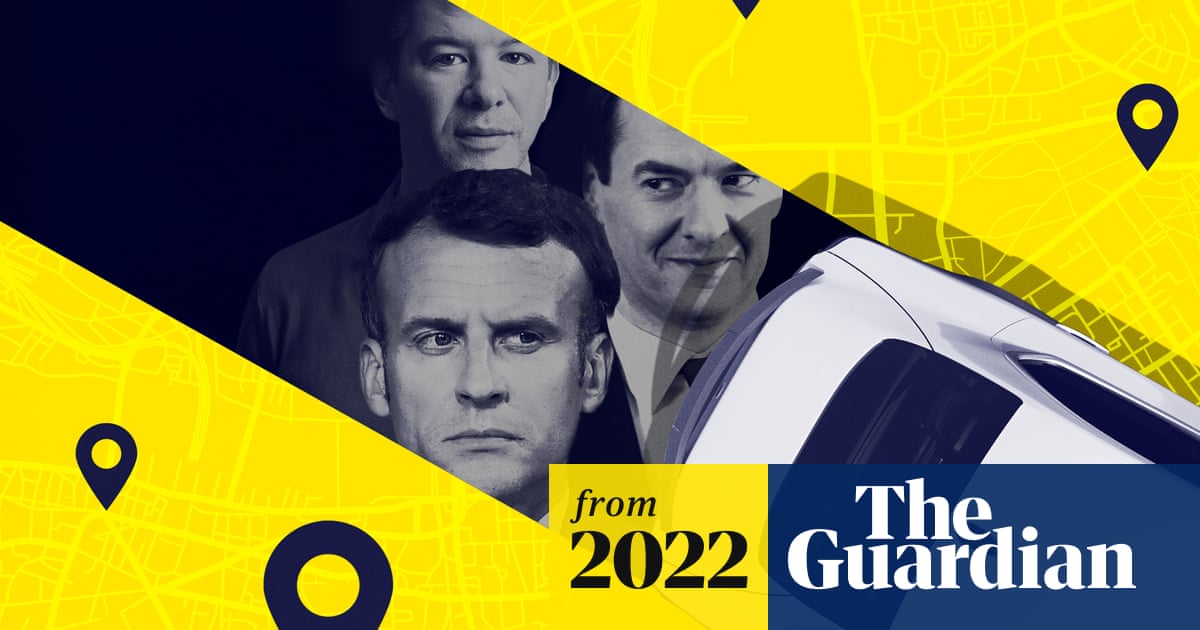RamsayBolton
Superstar

Uber broke laws, duped police and secretly lobbied governments, leak reveals
124,000 documents expose inner workings behind US tech firm’s rise as a global empire responsible for 19m journeys a day
- More than 124,000 confidential documents leaked to the Guardian
- Files expose attempts to lobby Joe Biden, Olaf Scholz and George Osborne
- Emmanuel Macron secretly aided Uber lobbying in France, texts reveal
- Company used ‘kill switch’ during raids to stop police seeing data
- Former Uber CEO told executives ‘violence guarantees success’
What in the fukk at the last one
The leak spans a five-year period when Uber was run by its co-founder Travis Kalanick, who tried to introduce the cab-hailing service into cities around the world by brute force, even if that meant breaching laws and taxi regulations.
During the fierce global backlash, the data shows how Uber tried to shore up support by discreetly courting prime ministers, presidents, billionaires, oligarchs and media barons.
Leaked messages suggest Uber executives were at the same time under no illusions about the company’s law-breaking, with one executive joking they had become “pirates” and another conceding: “We’re just fukking illegal.”
Macron, the French president, appears to have gone to extraordinary lengths to help Uber, even telling the company he had brokered a secret “deal” with its opponents in the French cabinet.
Privately, Uber executives expressed barely disguised disdain for other elected officials who were who were less receptive to the company’s business model.
The documents indicate Uber was adept at finding unofficial routes to power, applying influence through friends or intermediaries, or seeking out encounters with politicians at which aides and officials were not present.
It enlisted the backing of powerful figures in places such as Russia, Italy and Germany by offering them prized financial stakes in the startup and turning them into “strategic investors”.
And in a bid to shape policy debates, it paid prominent academics hundreds of thousands of dollars to produce research that supported the company’s claims about the benefits of its economic model.

